The election cycle that has consumed Sri Lanka for the past nine months has finally ended. What began with hope, noise, and political energy has now landed in confusion and mixed signals. With three national elections held within nine months, the country has been in an extended campaign mode, and the local government elections held on 06 May 2025 have brought the curtain down, but without a clear resolution.
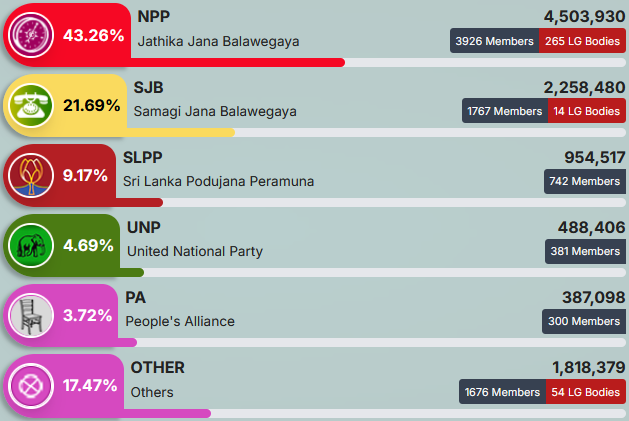
As the results trickled in, every political party rushed to claim victory, but the numbers tell a different story. While the JVP-led National People’s Power (NPP) government won the popular vote with 43%, it wasn’t a landslide or a commanding show of strength. In fact, the NPP has suffered significant erosion of its voter base, losing nearly 2.3 million votes compared to the parliamentary election held on 14 November 2024, where it secured over 6.8 million votes.
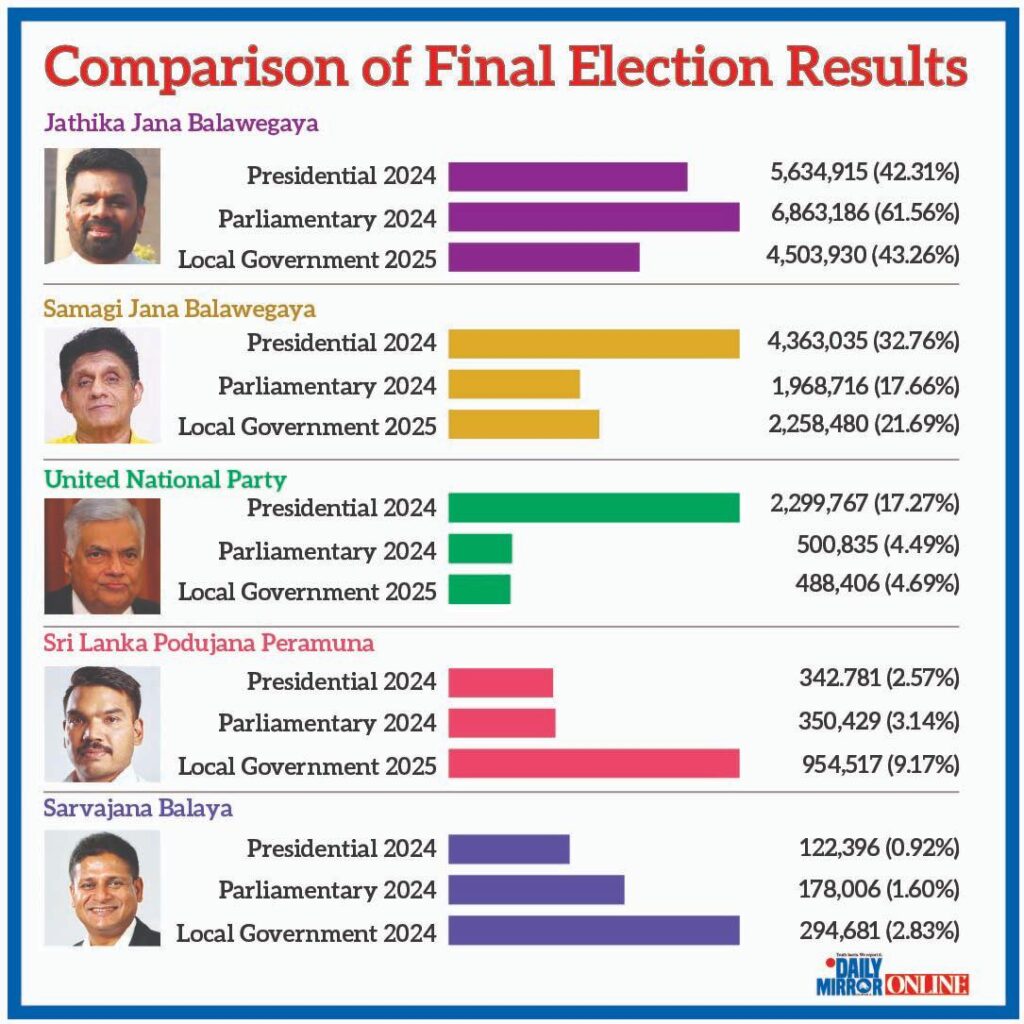
That shift in numbers is telling.
The NPP may still have emerged as the largest single party, but with a voter turnout of under 62%, the message from the electorate is clear: disillusionment is growing. The NPP secured roughly 4.5 million votes, and though it leads the count, the drop in support is too significant to ignore. For a government that swept into power promising transformation and justice, this election was meant to reaffirm the public’s trust. Instead, it has served as a wake-up call.
The Samagi Jana Balavegaya (SJB), led by Sajith Premadasa, came in second with around 2.3 million votes. Although they trailed significantly behind the NPP, the SJB leadership quickly spun the result as a victory, pointing to the government’s declining popularity. But their own numbers also reflect a party that has yet to regain the trust of the masses. The SJB failed to capitalise on voter fatigue or the government’s shortcomings, and their message didn’t fully land.
A notable development came from Namal Rajapaksa’s SLPP and Dilith Jayaweera’s Sarvajana Balaya. Both groups recorded healthy gains, collecting approximately 14% of the national vote. Their performance shows a space opening up in Sri Lankan politics for alternative voices, especially among voters frustrated with the government and the traditional opposition.
In contrast, the United National Party (UNP), led by former President Ranil Wickremesinghe, had little to celebrate. Running a quiet, uninspired campaign, the party secured just 488,000 votes, a figure that paints a grim picture for a party once central to Sri Lankan political life. Unless the UNP takes serious action to revive its leadership, vision, and outreach, it risks sliding further into irrelevance.
One of the biggest takeaways from this election is the absence of a clear mandate. With 43% for the NPP and a split vote among the rest, no single party can claim moral or political dominance. The combined opposition holds a majority of votes. Still, their fragmented approach and inability to offer a unified message left them unable to convert that advantage into meaningful victories at the grassroots level.
As a result, many of the 170 local councils are left without clear leadership. In several areas, the balance of power hangs in uncertainty, making governance at the local level difficult and disorganised. This institutional confusion, especially in the villages and cities, reflects a broader national dilemma: how to govern effectively without a clear political centre of gravity.
The election result is a mirror held up to all political forces in Sri Lanka. The NPP must now admit that its honeymoon period is ending, and the public demands more than speeches and symbolism. The government’s slow progress on justice, economic reform, and anti-corruption has eroded trust, and this election has exposed that vulnerability.
The opposition must reflect on its failure to build coalitions, offer compelling alternatives, and present a leadership vision that resonates with everyday concerns. While they may take comfort in the NPP’s reduced vote share, that alone is not enough. They still lack unity and clarity.
For the UNP, the message is even sharper: reinvent or fade away.
A critical question is at the core of it all: Will Sri Lanka’s political parties learn from these results? The electorate has spoken, not loudly, but clearly enough. Trust must be earned. Performance matters. Loyalty is not guaranteed. This election was not about blind support but about holding those in power accountable and asking hard questions of those seeking it.
Yet, as history has shown, learning is not the strong suit of Sri Lankan politics. Many parties will look at the numbers and find reasons to celebrate, but few will examine them through the microscope needed to understand what went wrong and what must change.
The sugar rush of the election cycle is over. The excitement has faded, and now it’s time to deliver. Sri Lanka is left not with winners and losers, but with a hung verdict, a divided people, and the pressing need for mature, visionary leadership.
Whether that leadership emerges from the NPP, the opposition, or someone new will define the country’s future. Sri Lanka must live with an election result that answers nothing but raises everything.
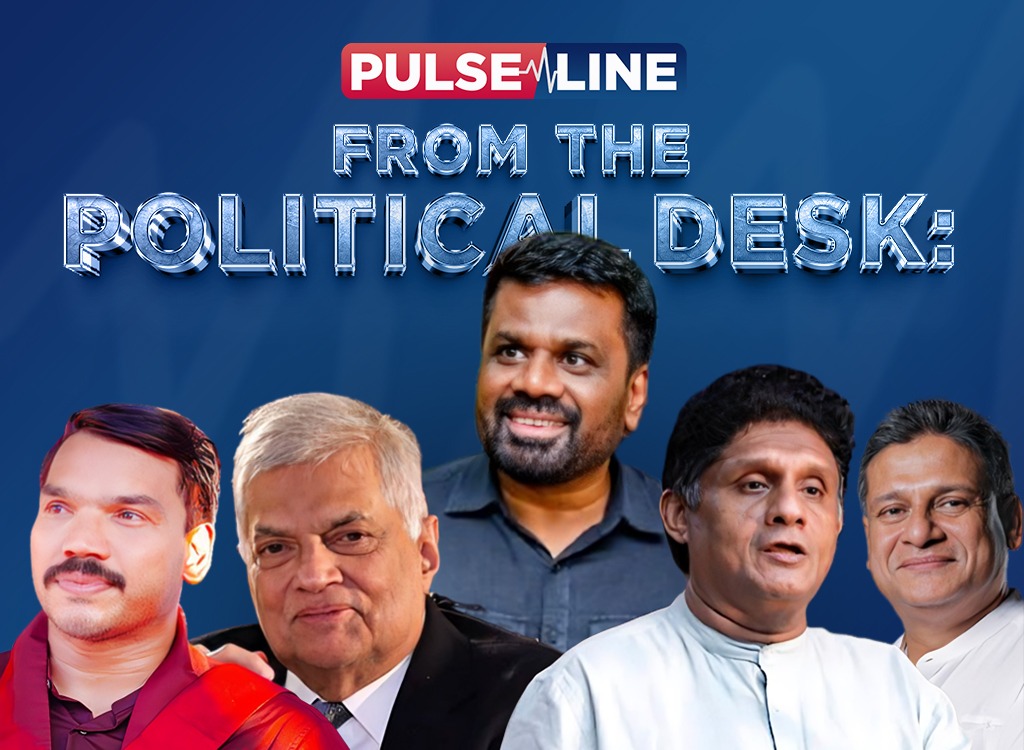
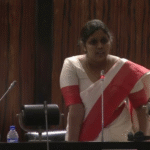

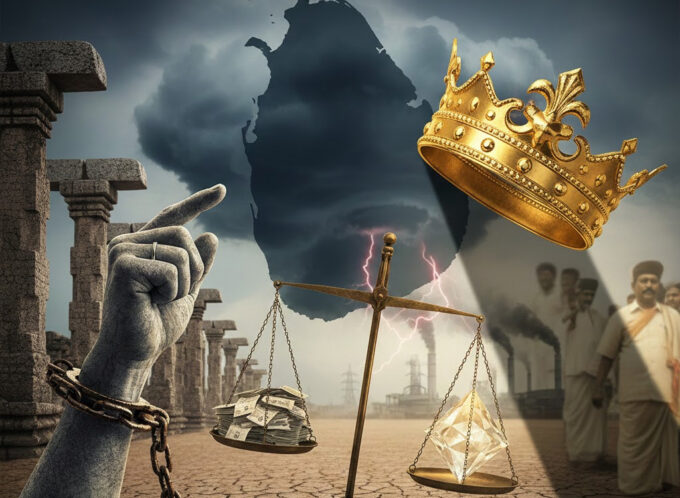
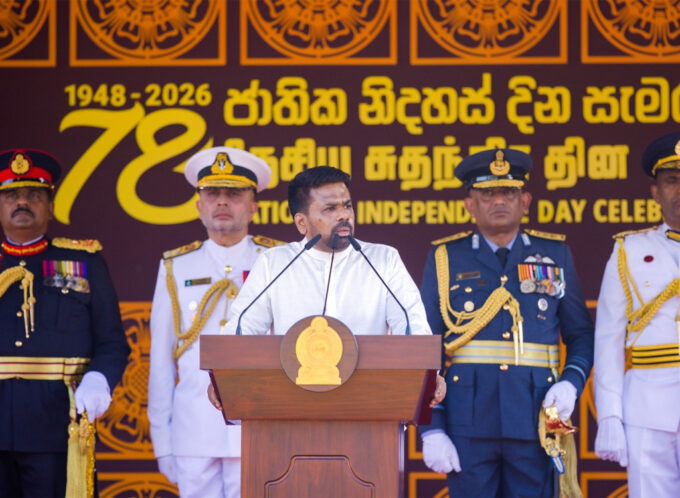
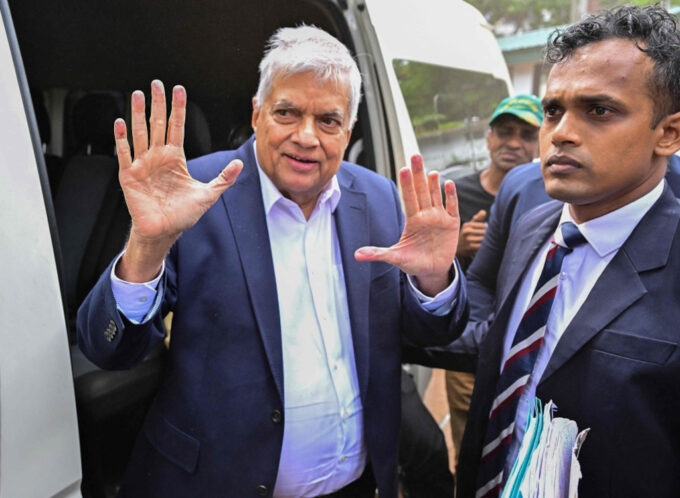


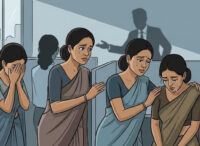


Leave a comment